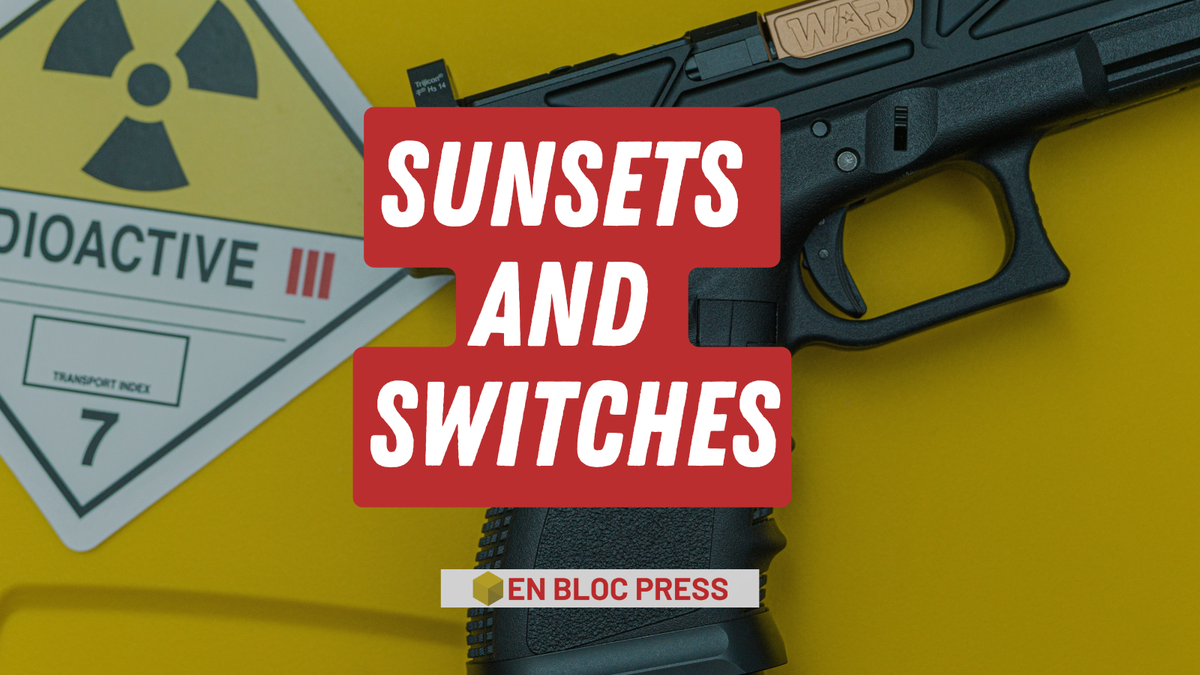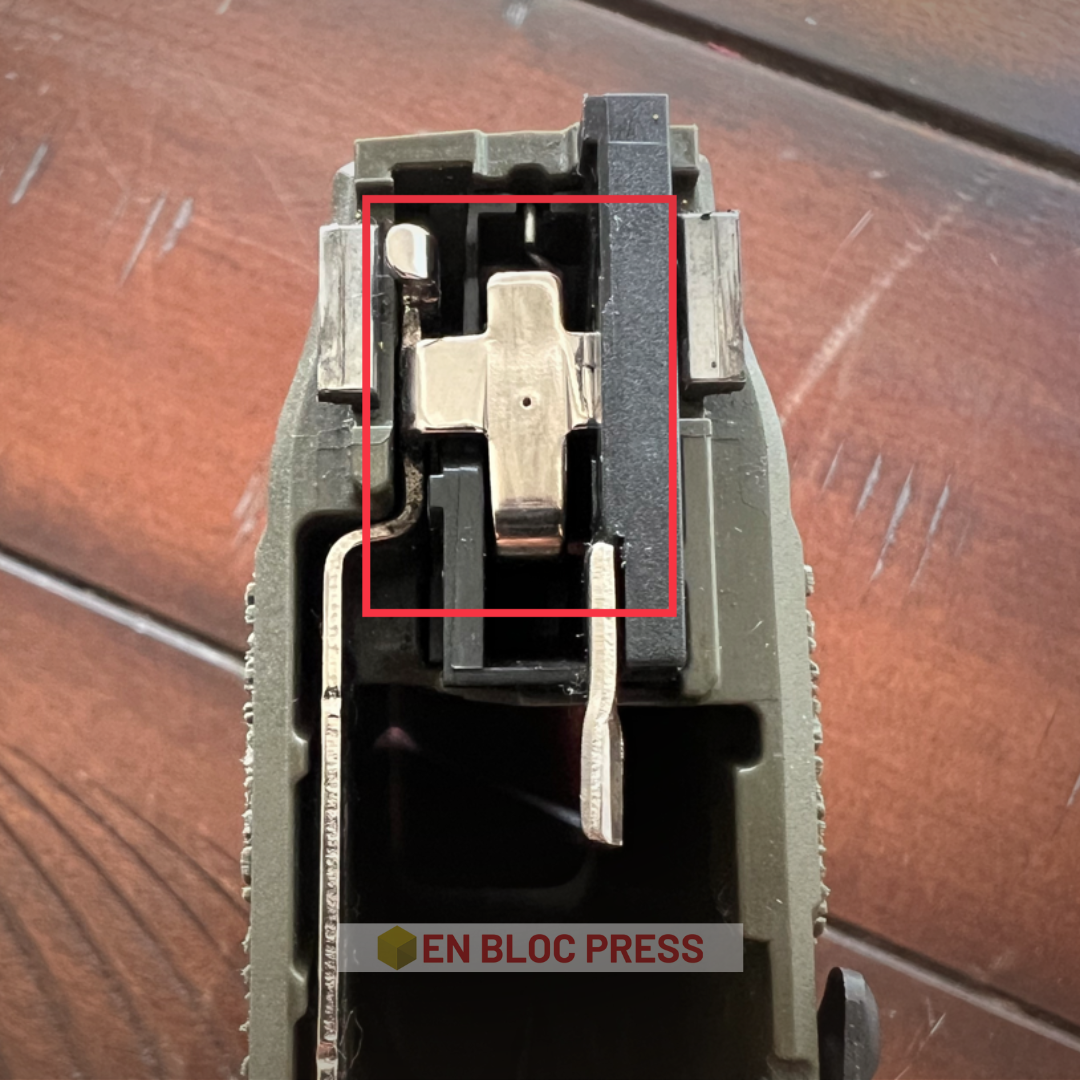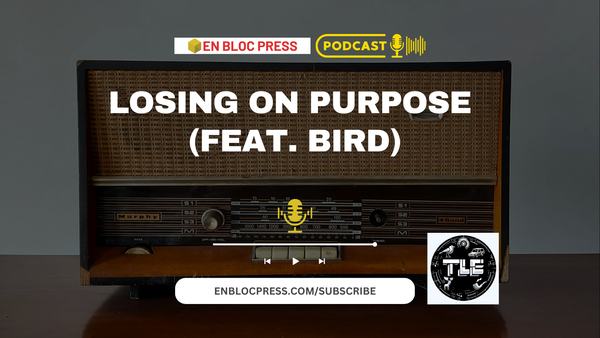Sunsets and Switches
A closer look at California's AB 1127, which seeks to reclassify and outlaw the Glock trigger design as "machinegun-convertible"

On Friday, October 10, California Governor Gavin Newsom signed Assembly Bill 1127 (AB 1127), barring California gun dealers from selling "machinegun-convertible pistols," a definition that encompasses Glock and Glock-pattern handguns by specifically restricting the cruciform trigger bar design of such guns.
The law goes into effect on July 1st, 2026. As with most California gun legislation, the bill contains exemptions for law-enforcement purchases, private-party transfers conducted through an FFL, some existing dealer inventory, gunsmith/repairs, and some other limited cases.
The bill's signing was quickly followed by a lawsuit from the NRA, Second Amendment Foundation, and Firearms Policy Coalition, in the form of Jaymes vs Bonta (link below).

California isn’t the first government to take a swing at Glock; Chicago tried last year, bringing a lawsuit against Glock and its Austrian parent company, front-running California's claim that Glock pistols are simple enough to convert into machine guns that their continued sale is a threat to public safety.
Glock sought protection under PLCAA, arguing that federal law shields gun makers from liability for criminal misuse. In September of this year, a Cook County judge refused to dismiss the case; an outcome is still pending.
California shares the same grievance as Chicago, but is employing a different strategy to impose its will, by changing the law itself instead of filing a lawsuit.
Glock Trigger Design
Last week's "Glock ban" hinges on the cruciform trigger bar design of Glock-pattern firearms.
AB 1127 reads:
(a) As used in this part, “machinegun-convertible pistol” means any semiautomatic pistol with a cruciform trigger bar that can be readily converted by hand or with common household tools, as defined in 11 C.C.R 4082, into a machinegun by the installation or attachment of a pistol converter as a replacement for the slide’s backplate without any additional engineering, machining, or modification of the pistol’s trigger mechanism.
For reference, here's a picture of the cruciform portion of a Glock trigger assembly:

It's important to understand that AB 1127 doesn’t ban the Glock brand by name, but rather rewrites state law to outlaw the specific cruciform design of Glock's trigger mechanism, deeming it “machinegun-convertible.”
This is a roundabout way of saying, "Californians can't buy Glocks anymore because switches are easy to 3D print or order from Chinese drop-shippers, and our voters won't stop waving their illegal machine guns around in music videos."

How did we get here?
Unlike in most states, civilians in California can only buy specific, state-approved models of handguns, and these guns are listed on the state's approval roster. California’s approval roster is an outgrowth of the state's 2001 implementation of the Unsafe Handgun Act (UHA).
The UHA required new handguns sold in California to satisfy drop-safety tests and include features like a loaded chamber indicator and magazine disconnect. Over time, the state added microstamping mandates (2007), requiring firearms to imprint identifying codes onto cartridge cases once the technology became feasible to implement. Microstamping requirements are outside the scope of this article, but this is a topic that has had its own ups and downs in legislatures and courts.
The bottom line is that California is overtly hostile to the commercial civilian handgun market, and AB 1127's (functional) ban on Glock-style pistols is emblematic of the state's efforts to deny the Second Amendment by any means necessary.
What about other handguns?
AB 1127 is carefully worded to target Glock-pattern firing systems. And the statute explicitly carves out other handgun designs as not being machinegun-convertible, stating "machinegun-convertible pistols do not include a hammer-fired semiautomatic pistol or striker-fired semiautomatic pistol lacking cruciform trigger bars". So your 1911 and P320 are safe(ish).
While the new law is limited to Glock-pattern trigger designs, remember that the world is full of Glock clones (like Shadow Systems) and that a small handful of other makers also use a cruciform trigger design in specific models, which may also run afoul of this new bill.
Couldn't Glock add some plastic molding to block the installation of a switch? Not really. AB 1127 also makes it clear that a simple manufacturer's workaround won't appease California. Section 16885 (c) of the new law adds, "A polymer notch or other piece of polymer molded into the rear of the pistol frame does not prevent ready conversion into a machinegun and will not prevent a pistol from qualifying under this definition".
The Legal Arguments
The crux of the pro-Glock argument in Jaymes vs Bonta is that Glock pistols are in common use, and therefore cannot be restricted in the style of AB 1127.
You'll recall the Heller decision affirmed the Second Amendment affords private citizens the right to possess ordinary types of weapons and use them for lawful purposes such as self-defense, even if the gun's owner is not formally part of a local militia.
Glocks are unquestionably in common use, as they're consistently some of the most popular handguns in America. The doctrinal counter to the "common use" argument is the "dangerous and unusual" argument, which is likely what California will rely on (they'll say Glock's designs are dangerous and unusual because of how easily they can be converted to full auto).
Either way, "switches" are already illegal, and so is the unlawful manufacturing of machine guns. Glock's handgun design is elegant and practical, and it's not Gaston's fault that California has a problem with Glock Switch-Americans; this is all just another effort by California to restrict access to firearms using bad-faith legal argumentation. Once again, it comes back to the famous MW tweet:

This one should be an easy win if the court system actually does its job. Until then, gun dealers in California that sell "machinegun-convertible pistols" after the law takes effect face a $1,000 fine for a first offense, then a $5,000 fine and loss of license, and potential criminal charges beyond that.
###





